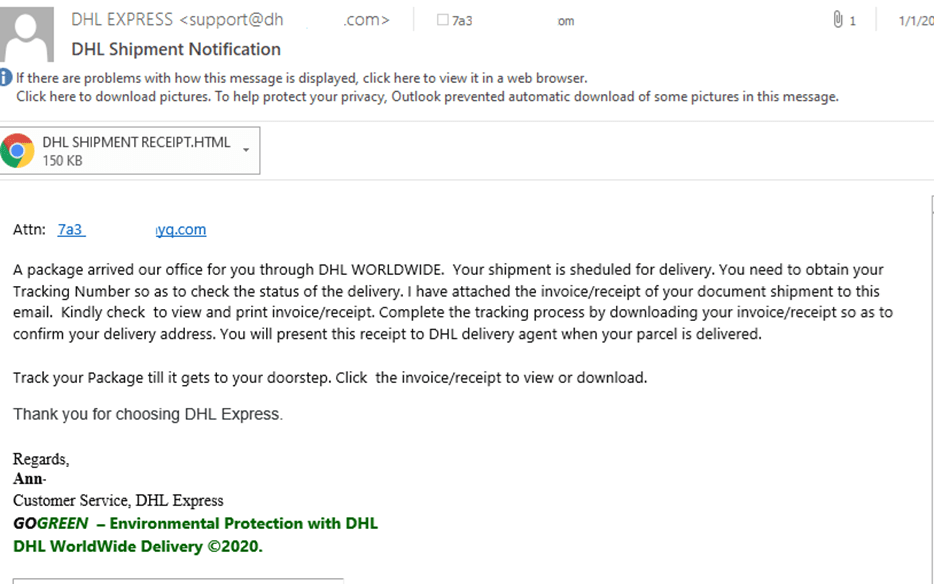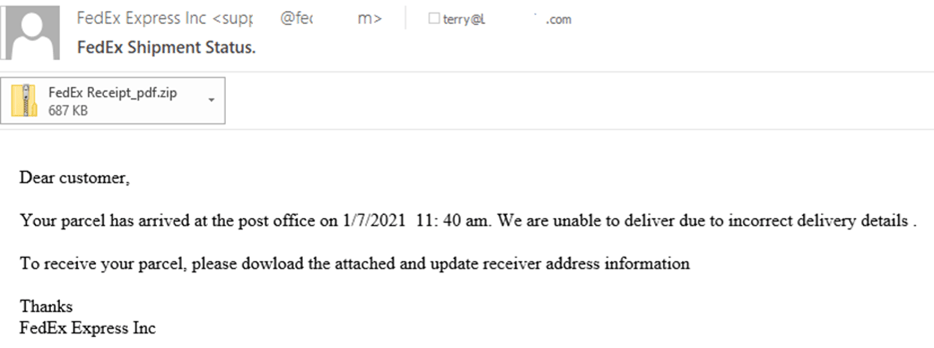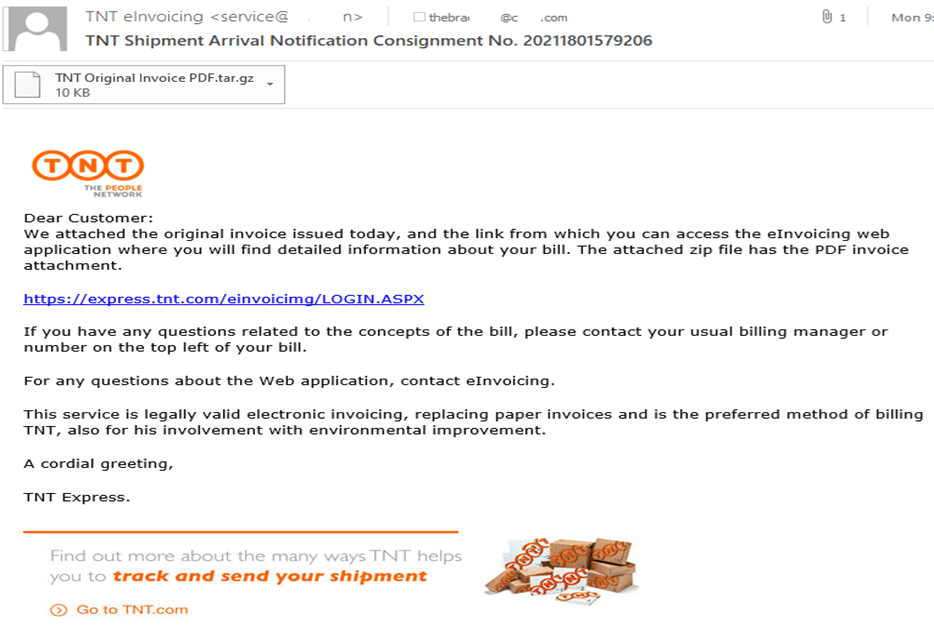Research by Bitdefender reveals a 30% increase in the prevalence of phishing campaigns using the names of well-known shipping companies
Bitdefender Antispam Lab recently observed a 30% increase (compared to the Christmas period) in the spread of phishing campaigns. These campaigns would leverage the names of reputable and reputable spice companies of the caliber of DHL, TNT, FedEx e UPS. The attack methodology consists in soliciting the victims a download dangerous files or to click on infected links which can then cause damage to devices and lead to the theft of personal information.
We are therefore talking about trivial shipping notification emails that invite recipients to review or access attachments by confirming and verifying the invoices or the parcel address. The well-known security company reported that 61% of incoming correspondence appears to come from on January 18 DHL has been marked as spam. Almost the 30% of all spam received related to DHL it turned out to be a phishing attempt.
Types of phishing emails: how to recognize them?
Most of these emails inform the recipient that the parcel delivery is pending and obviously includes all company logos, tracking numbers and / or invoices (obviously bogus). The reasons on which the bad guys leverage are often theincorrect delivery address or the safety rules regarding COVID-19.
DHL is definitely one of the most exploited brands from cybercriminals. There are at least three versions of phishing emails that have DHL as a fake recipient. This is the most common one below.

The emails that pretend to come from the courier FedEx Express, however, they are not as long as in the case of DHL. They pry up concise messages and simple. This tactic proves to be a winner in that the recipient is tempted to open the attachments to know more.

In another variant studied and deepened by the researchers of Bitdefender, a representative of FedEx warns recipients that due to the COVID-19 pandemic, must go personally to the delivery office bringing with you a copy of the waybill attached in the email.
That’s not all, because phishing emails have also been spotted involving UPS e TNT. They are often emails that have as subject “Shipment Arrival Notification Consignment”And below we see an example.

How to defend against these attacks?
Although the hectic period of Christmas shopping has now come to an end, consumers continue to shop mostly online. So it’s hardly surprising that many cybercriminals continue undeterred to launder old deception techniques or develop new ones. To protect yourself from phishing attacks users can follow these simple rules:
- Be wary gives unexpected messages that come from these types of companies
- Check the address of the sender in order to check if the domain address is also minimally altered
- Never provide personal informations or make payments through online forms or links
- Never click on the links provided in the email. At most visit the transport company page directly and look for the official contact information
- Check for any spelling errors and of grammar even if the email seems truthful
- To install a security solution on your device to safeguard your data from telematic threats
What do you think of these phishing campaigns so recurring? Let us know with a comment below and keep reading allotek to stay updated on the latest news and more.















